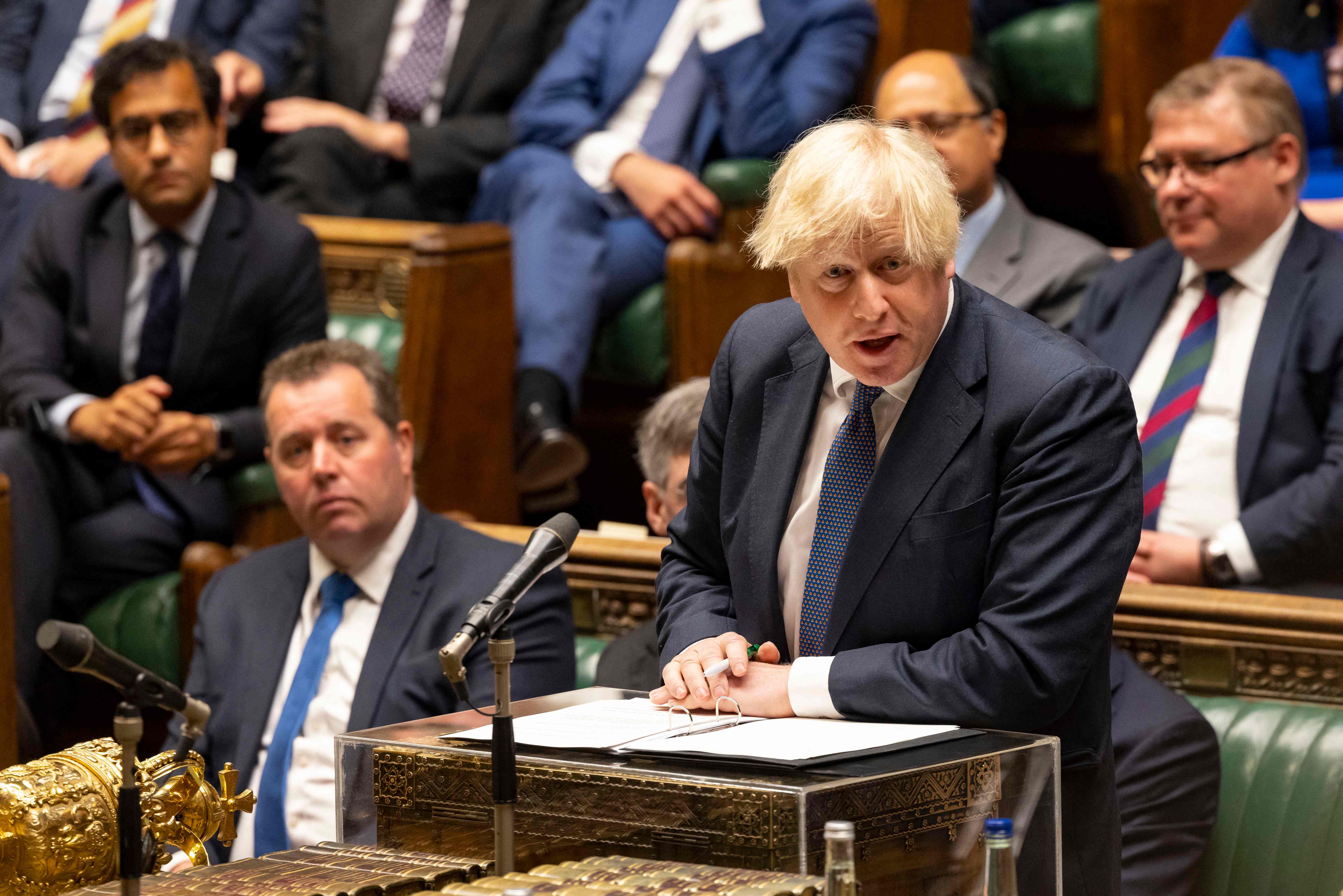There’s discomfort ahead for Boris Johnson as MPs return to parliament
As has been the case since he took office, Johnson enters the new term in the throes of crisis, writes Andrew Woodcock


The return to Westminster after the long summer break is always a time of frenetic excitement for MPs, advisers and political correspondents.
As the corridors and tearooms of the House of Commons start to buzz once more after weeks of quiet, gossip is exchanged, old friendships and animosities are revived and new plots start being hatched.
Next Monday will see that happen in spades, as parliament resumes normal operations for the first time in almost 18 months, following the lifting of coronavirus restrictions first imposed in March 2020.
Barring a surge in new infections forcing a fresh lockdown, MPs will no longer appear as disembodied faces broadcasting to the chamber from their front rooms by video link. The tapes and stickers enforcing social distancing on the green benches will be gone. And MPs and journalists will be able to huddle together over cups of tea or pints of beer to exchange information and pass on stories.
Some MPs – those who were first elected in December 2019 – have had virtually no experience yet of parliament in full swing. After a solitary existence in their own constituencies, many are eager to throw themselves into the swirl of caucuses, committees and cliques that characterise normal life at Westminster.
Last month’s emergency debate on Afghanistan gave a preview of what can be expected, with impassioned speeches from packed benches providing a welcome contrast to the anaemic debates seen when attendance in the chamber was strictly limited.
Speculation is rife over whether Boris Johnson – who has sometimes looked adrift performing to a reduced audience – will be buoyed by the roar of supportive Tory MPs behind him, and whether Keir Starmer’s careful, forensic approach to questioning will be drowned out without the courtroom silence which has prevailed in recent months.
Anyone who has seen the Commons chamber at full throttle will know that atmosphere matters in politics, that character is tested and weaknesses exposed by the cut and thrust at the despatch box, the interruptions and heckles and jokes that have been absent for so long.
As has been the case virtually throughout his premiership, Johnson enters the new term in the throes of crisis, not only over the continuing battle with Covid – with cases expected to spike as schools return and tensions mounting with advisers over the vaccination of schoolchildren – but also over the retreat from Afghanistan, where he can expect demands for a public inquiry to grow.
He faces immediate clashes over Brexit, as grace periods for exports of goods to Northern Ireland expire at the end of the month and stores warn of food shortages at Christmas. And he will face furious assaults over the decision – which he does not seem inclined to reverse – to cut £20 a week from benefit claimants’ universal credit payments in four weeks’ time. That in itself will only be a foretaste of the furore which will greet the autumn’s main political event – Rishi Sunak’s spending review statement, in which the chancellor will attempt to claw back some of the billions spent on Covid with a package which may institute a new era of austerity just as the prime minister wants to deliver on his promises to “level up”.
Parliament may be returning to normality, but as Johnson will find, for a prime minister in near-permanent crisis, normality is not necessarily a very comfortable place to be.
Yours,
Andrew Woodcock
Political editor






Join our commenting forum
Join thought-provoking conversations, follow other Independent readers and see their replies
Comments